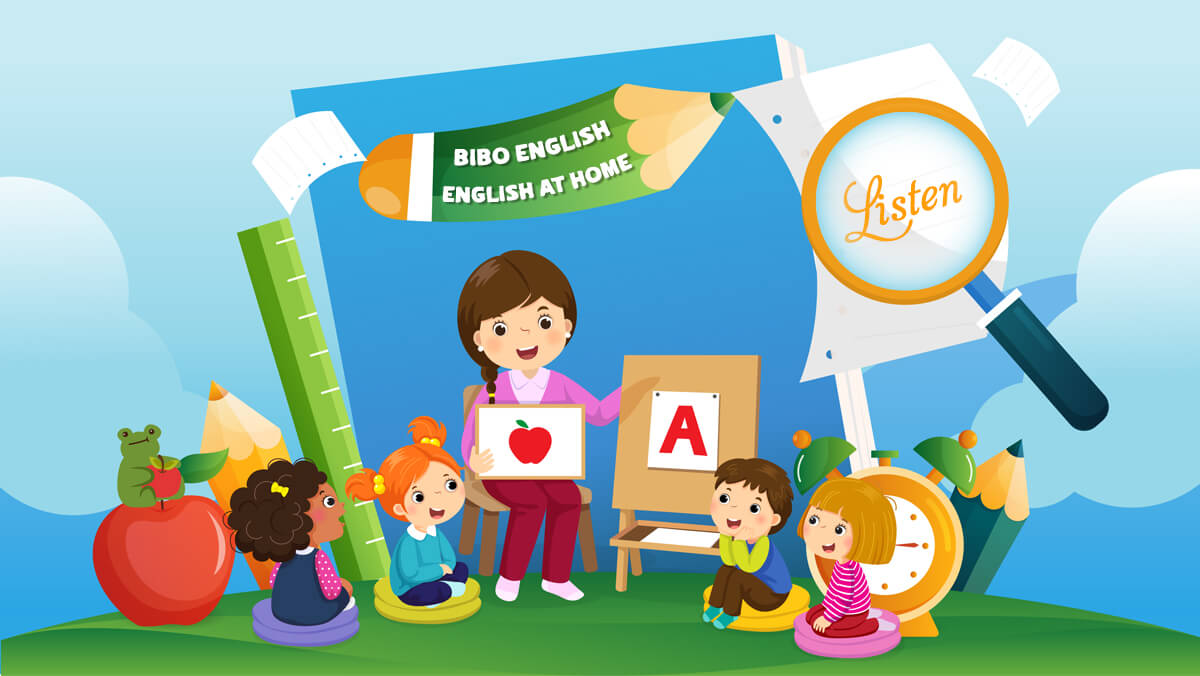Principles of "Bathing" Language When Teaching Children English

Children who are opened to language intelligence and are exposed to English from an early age will have the advantage of better language development and have more open opportunities in later life. However, not all parents know how to teach their children to learn English in a scientific and correct way, leading to ineffective learning. One of the most effective principles successfully applied by parents is the "immersion" of language when teaching children English.
Principle: Listen as much as possible
The principle of "immersing" the language when teaching children a foreign language is one of the great ways to start teaching your child whether you know a lot, know little or even don't know that foreign language. At any time in this, parents can play English songs for children to listen to unconsciously during play and activities. This method is suitable for all ages and follows the very natural laws of language development.
A 3-year-old child who develops normally in any country or region can speak the language in that country or locality because the child has heard the people around him talk and unconsciously received it in the brain. The language that children acquire in the period 0-3 years old will go into the subconscious, so children will remember it naturally and instinctively pop it out.
Therefore, parents should not wait for the child to speak before teaching, but please immerse the child in the mind from an early age so that the child can speak fluently when he can speak. Because you have to acquire language to express it out in language, if you don't listen or listen a little, you won't have many words to express. Just like a Vietnamese child has acquired language from the time he was in the mother's womb until he was born, so by the age of 1, he started babbling, at the age of 2 he spoke fluently and at the age of 3, he was fluent in Vietnamese.
Language develops in order: Listening – Speaking – Reading – Writing. Of these four skills, Listening and Reading are receptive skills, while Speaking and Writing are productive skills. If you want to speak well, you must listen a lot, if you want to write well, you must read a lot. So, if you want your child to speak English well, give them a lot of listening, aka "immersing" the English language for them.
Listen in what form?
There are two types of listening: unconscious listening and intentional listening
Unconscious listening, also known as a language "immersion", is a great way to start for 0-3 years old and should be maintained for children as well as anyone of any age who wants to improve their language skills. At any time of the day, parents can also play English songs or English listening files for children to listen to unconsciously during playtime and activities.
Intentional listening is a combination of listening with learning, which can often be applied more clearly as the child gets a little older, from about nine months or 1 year onwards, depending on the child's development.
Purposeful listening activities to learn
When listening, parents should sing along with their children, repeat the lyrics, sing and dance to the music or do movements suitable to the content. For example, hearing about body parts, pointing to body parts, hearing about action verbs such as walking, jumping, running, crawling, etc., they also act like that.
For parents who are good at English, communicate with your baby every day. Choosing one of the two people who communicate completely in English with your baby is best. If that is not the case, you can communicate with your baby at a certain time of the day, try to fix the time and communicate in English entirely at that time. Point and name objects, people, and life around you, and explain to children activities, actions, and phenomena. Parents should note that it is absolutely not advisable to teach children by translating from English to Vietnamese or vice versa, especially for children under 6 years old.
If you are not good at English, let your child listen to the song, audio file or video sample first, and then try to practice speaking to him according to that content like a classmate.
Thus, in order for children to learn English effectively, parents need to choose the right method suitable for each stage and age. Hopefully, the above principles of "immersing" the language when teaching children English can help parents better understand about teaching and learning English for their children so that they can be applied accordingly.


